Gasket problems can be a real headache for car owners. Whether it’s a leaky head gasket, a faulty intake manifold gasket, or a troublesome valve cover gasket, these issues can lead to significant engine damage if left unaddressed. Knowing how to preserve a car experiencing these problems is crucial to preventing further damage and costly repairs.
Addressing gasket issues promptly is key to preserving your vehicle’s engine. A blown head gasket, for instance, can contaminate your oil and coolant, leading to overheating and catastrophic engine failure. This article will guide you through the steps to take when dealing with gasket problems, offering tips for preservation and highlighting the importance of professional assistance.
Identifying the Culprit: Common Gasket Failures
Various gaskets within your car’s engine can fail. Identifying the specific gasket causing the problem is the first step towards effective preservation. Common culprits include the head gasket, intake manifold gasket, valve cover gasket, and oil pan gasket. Each exhibits distinct symptoms, such as coolant leaks, oil leaks, rough idling, or overheating.
Head Gasket Failure: A Major Concern
The head gasket is arguably the most critical gasket in your engine. It seals the combustion chamber, preventing coolant and oil from mixing. A blown head gasket is a serious problem that requires immediate attention. Symptoms include white smoke from the exhaust, milky oil, overheating, and loss of coolant.
What are the signs of a blown head gasket? Overheating, white exhaust smoke, and milky oil are key indicators.
Intake Manifold Gasket Leaks: Affecting Performance
The intake manifold gasket seals the passage between the intake manifold and the engine block. A leak here can disrupt the air-fuel mixture, resulting in rough idling, reduced power, and poor fuel economy.
How do I know if my intake manifold gasket is leaking? Rough idling, decreased engine performance, and a noticeable vacuum leak sound are typical signs.
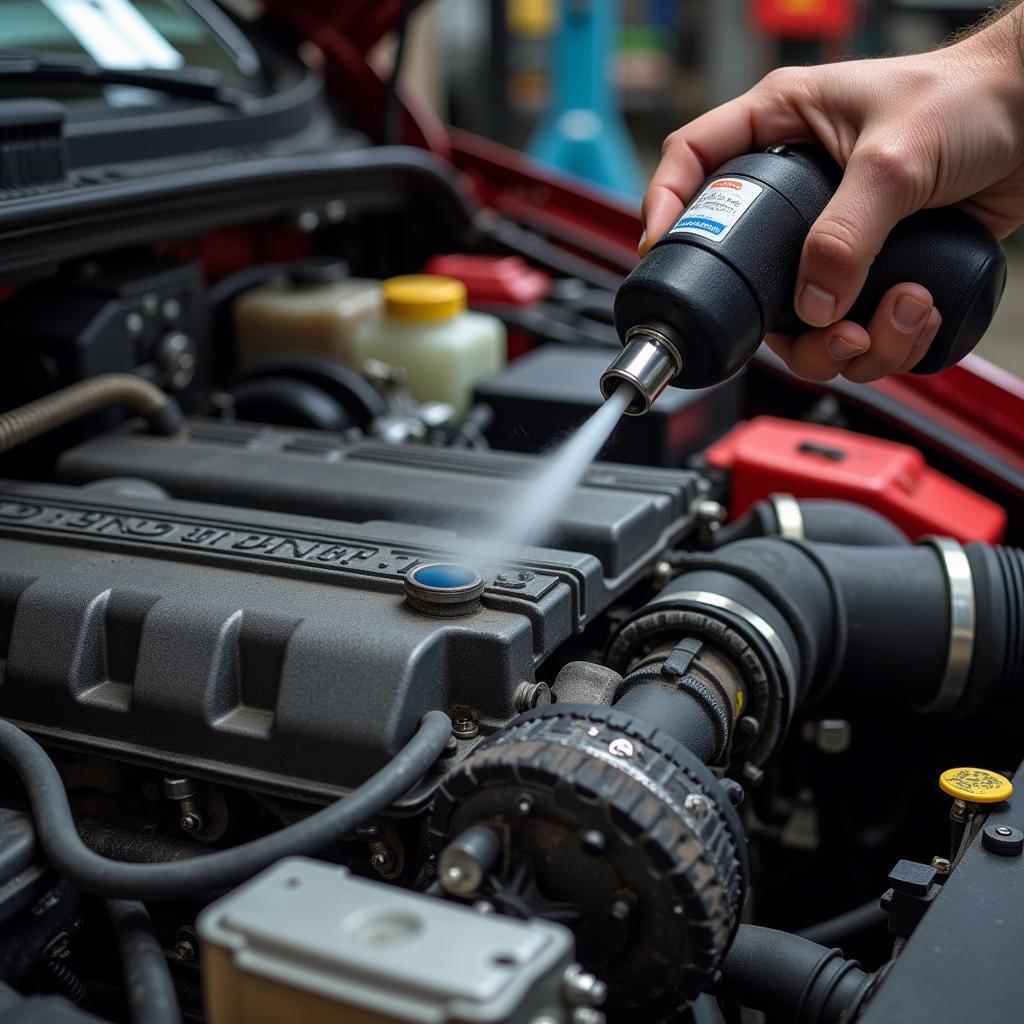 Intake Manifold Gasket Leak Detection
Intake Manifold Gasket Leak Detection
Preservation Strategies for a Car with Gasket Problems
Once you suspect a gasket problem, taking immediate steps to preserve your engine is crucial. Avoid driving the car as much as possible to prevent further damage. Check your coolant and oil levels regularly and top them off if necessary. If you notice significant leaks or performance issues, have the car towed to a qualified mechanic.
The Importance of Professional Diagnosis and Repair
While some minor gasket leaks might be manageable with temporary sealants, it’s crucial to have a professional diagnose and repair any gasket issue. A mechanic can accurately pinpoint the problem, determine the extent of the damage, and recommend the appropriate repair strategy.
What is the best way to fix a gasket problem? Consulting a qualified mechanic is always the recommended approach for accurate diagnosis and repair.
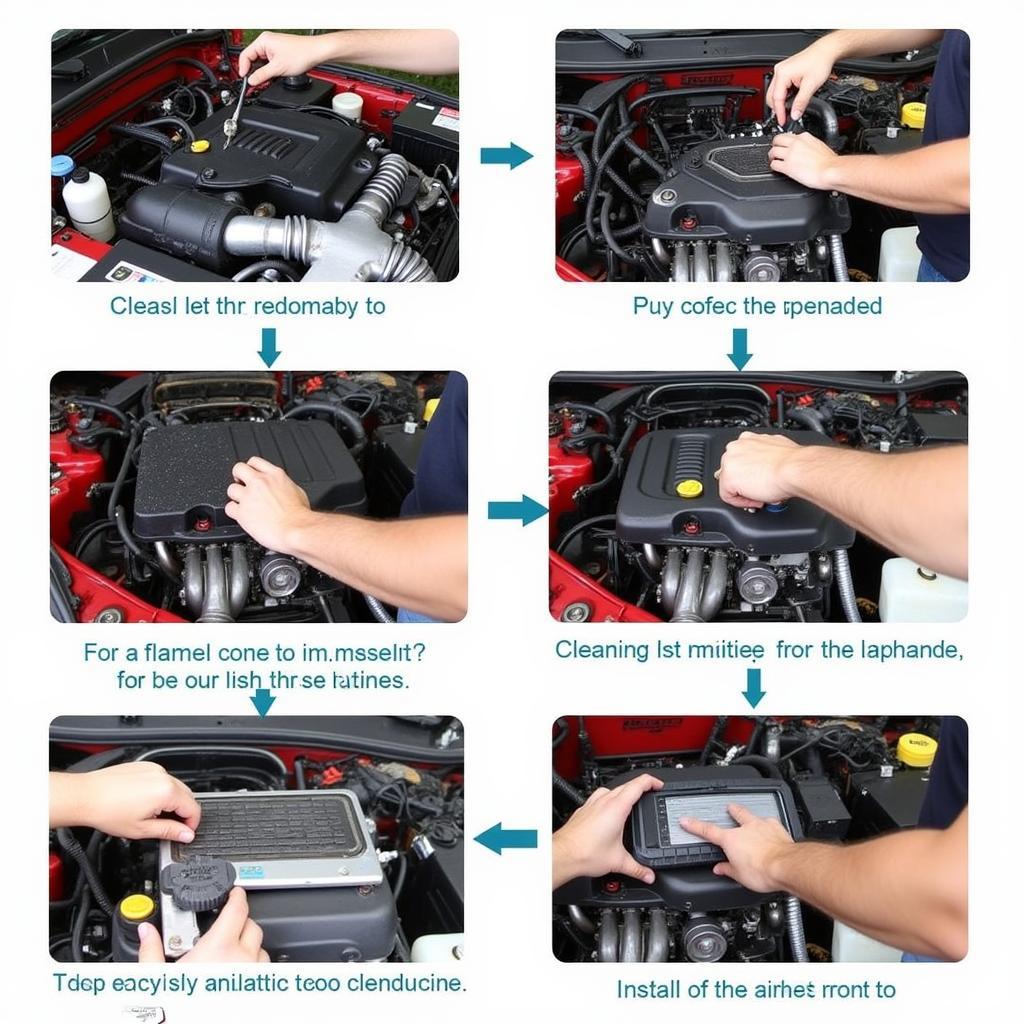 Head Gasket Replacement Process
Head Gasket Replacement Process
Preventing Future Gasket Problems
Regular maintenance is key to preventing future gasket issues. Ensure your cooling system is functioning correctly, as overheating is a common cause of gasket failure. Use the correct coolant type and have your cooling system flushed regularly. Additionally, use high-quality oil and change it according to the manufacturer’s recommendations.
How can I prevent gasket problems? Maintaining a healthy cooling system and using quality oil are essential for preventing gasket issues.
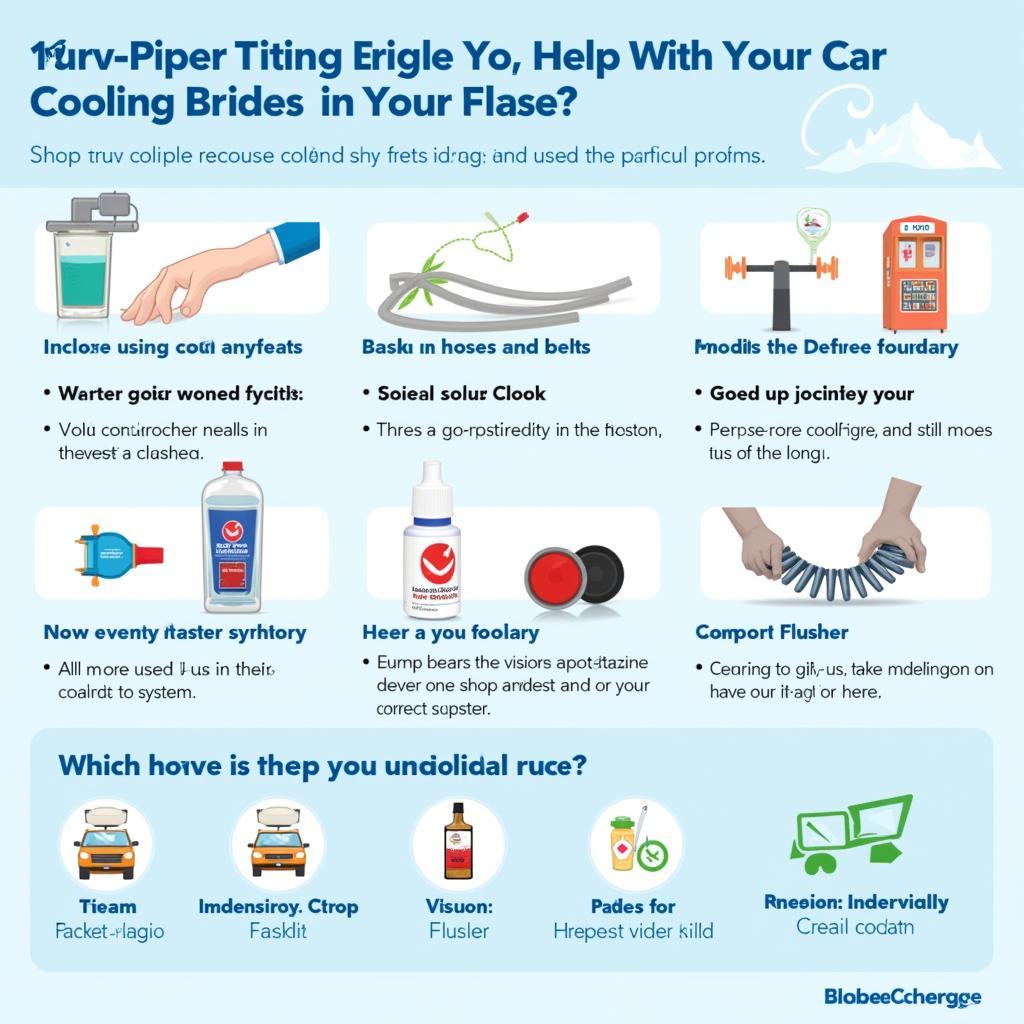 Cooling System Maintenance Tips
Cooling System Maintenance Tips
Dealing with the Aftermath of Gasket Failure
If you’ve experienced a major gasket failure, like a blown head gasket, there might be lingering effects even after the repair. It’s essential to have the engine thoroughly inspected for any damage caused by overheating or contamination. This might involve flushing the oil and coolant systems multiple times to ensure complete removal of any contaminants. Similar to issues experienced by some car owners described in cars with the most problems 2017, gasket problems can cause significant headaches.
Long-Term Care After Gasket Repair
After a gasket repair, continue to monitor your car’s performance and fluid levels. Be vigilant for any signs of recurring leaks or overheating. Regular maintenance and prompt attention to any new symptoms will help ensure the longevity of your engine. Choosing a reliable car model like those mentioned in list of cars with least problems can minimize the risk of facing these issues in the future. Understanding which cars have fewer problems can be beneficial as well, you can check out what cars have the less problems and recalls.
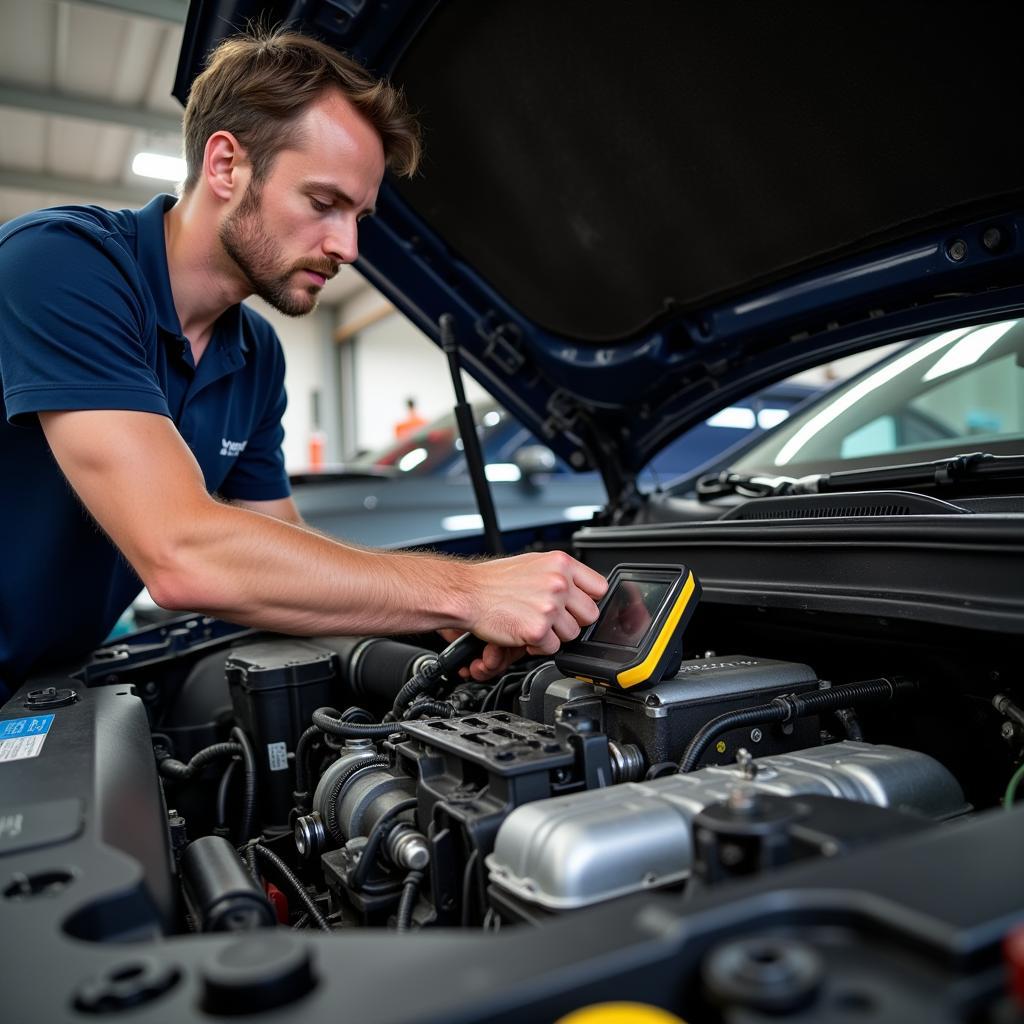 Post-Repair Engine Inspection
Post-Repair Engine Inspection
Conclusion
Gasket problems can be a significant concern for car owners. Understanding How To Preserve A Car That Has Gasket Problems is essential for preventing further damage and costly repairs. By recognizing the symptoms, taking prompt action, and seeking professional assistance, you can protect your vehicle’s engine and extend its lifespan. Similar to avoiding common Bluetooth issues highlighted in toyota bluetooth problems for rental car android, proactive maintenance is key. If you’re considering a new vehicle, researching brands with fewer problems, as discussed in what car brand has the least problems, might be a worthwhile endeavor.
For further assistance or inquiries, connect with AutoTipPro at +1 (641) 206-8880 or visit our office at 500 N St Mary’s St, San Antonio, TX 78205, United States.




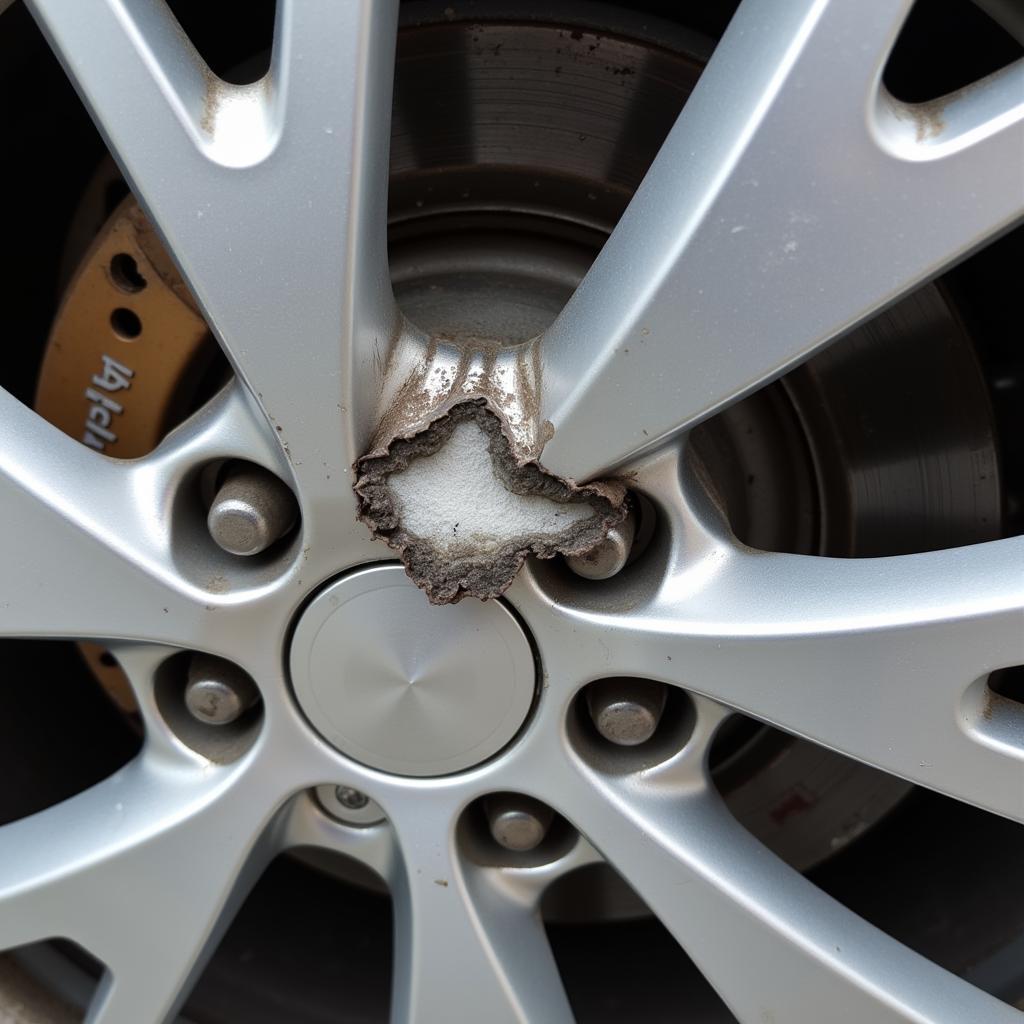
Leave a Reply